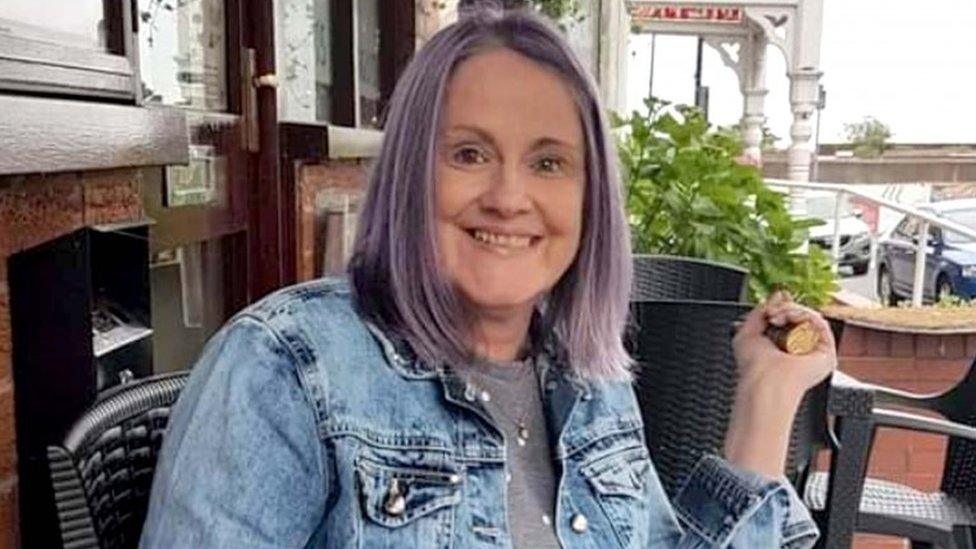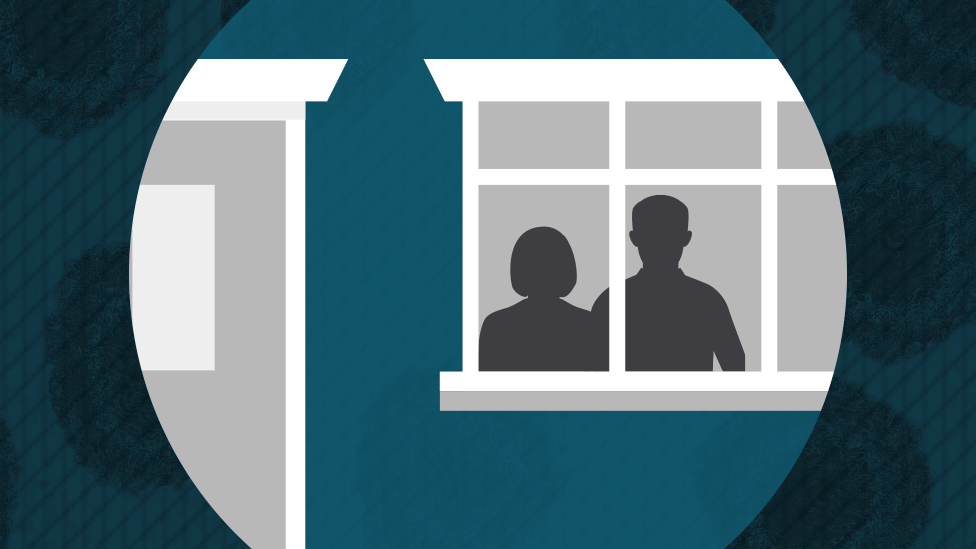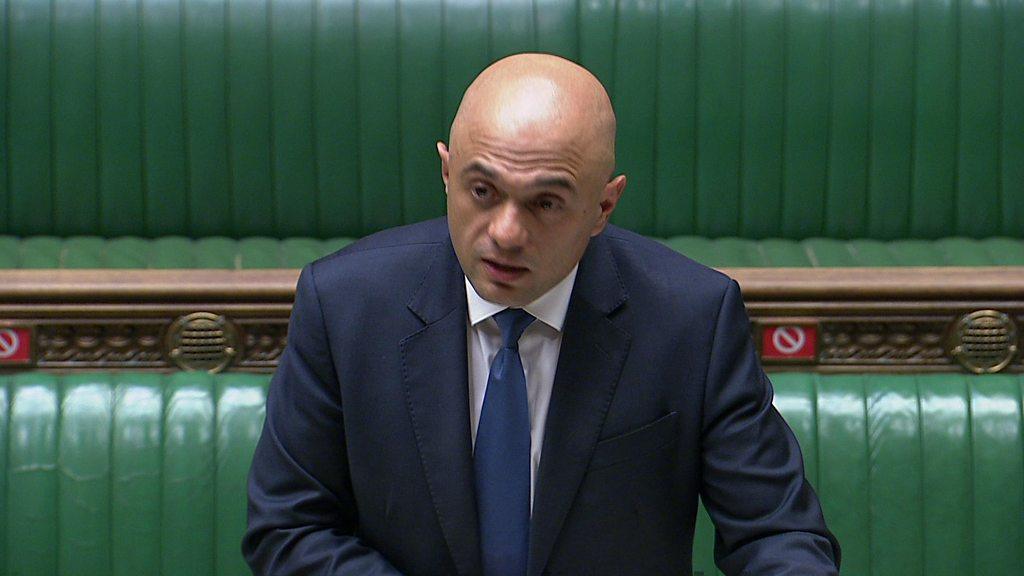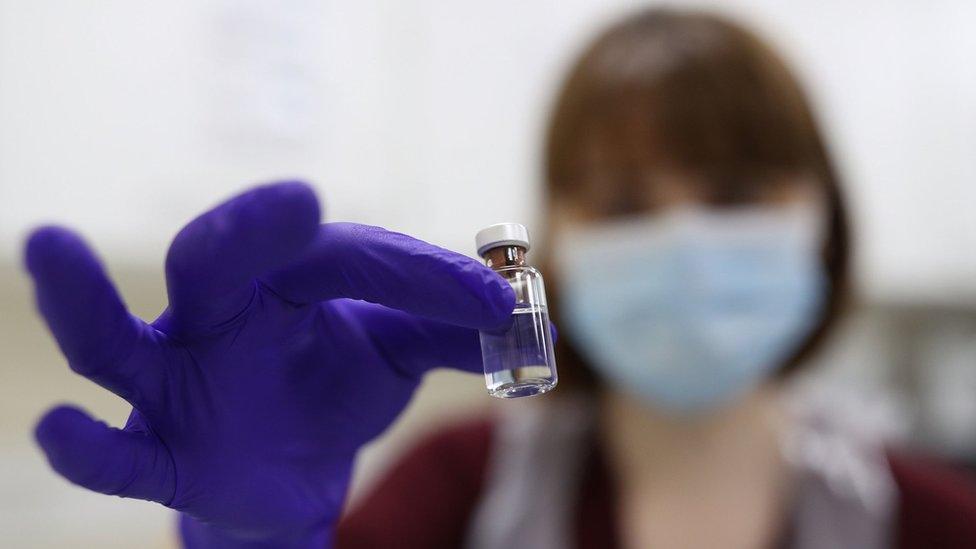Covid: Southport woman faces 'Russian roulette' as rules ease
- Published

Rosemary Parker said she was going to start shielding again
A clinically vulnerable woman has said she will be playing "Russian roulette" whenever she leaves her home once Covid restrictions are eased in England.
Rosemary Parker's treatment for pancreatic cancer has seen her have her spleen and part of her pancreas removed and she also has chronic asthma.
She said vulnerable people like her had been abandoned by the government.
The 59-year-old from Southport said she was "waiting for my X-ray spectacles so I know who has been vaccinated".
Ms Parker was reacting to government guidance, which has advised those most at risk from Covid-19 to avoid others who are unvaccinated, continue meeting outside where possible and ask friends and family to take lateral flow tests before visiting once all remaining restrictions are eased on Monday.
It is estimated about 3.7 million people would need to follow the advice, including people with certain cancers and those with severe respiratory conditions.
'Shielding mode'
The latest figures show that Sefton, where Ms Parker lives, had an infection rate of 484 cases per 100,000 residents in the seven days leading up to 9 July, a 7% rise on the infection rate a week before.
She said the guidance was "what I was expecting" and amounted to "complete abandonment like they have done to us before".
"They put the fear of God in you and say you are extreme risk and now it's just 'there you go, see you, you're on your own now'," she said.
"Every time we go out the door now, we are playing Russian roulette, and it's not just us, anyone can catch it."
Ms Parker said even though she had received both vaccine doses, she was going to start shielding again because anyone she came into contact with in public would have no way of knowing she was clinically extremely vulnerable.
"I just look normal, how do people know that I need space? How do I know they have been vaccinated?" she said.
"I just started to feel confident to go out... and now I don't feel safe to go anywhere again.
"I am back into shielding mode.
"The rates are rising so rapidly, I just don't feel safe out."
The government has previously said if it was to wait any longer than 19 July, the risk of a peak in infections in the summer wave could be pushed to the autumn, which could make things worse with increased impact of flu and other viruses circulating.

Why not follow BBC North West on Facebook, external, Twitter, external and Instagram, external? You can also send story ideas to northwest.newsonline@bbc.co.uk
Related topics
- Published13 July 2021

- Published12 July 2021

- Published9 July 2021
